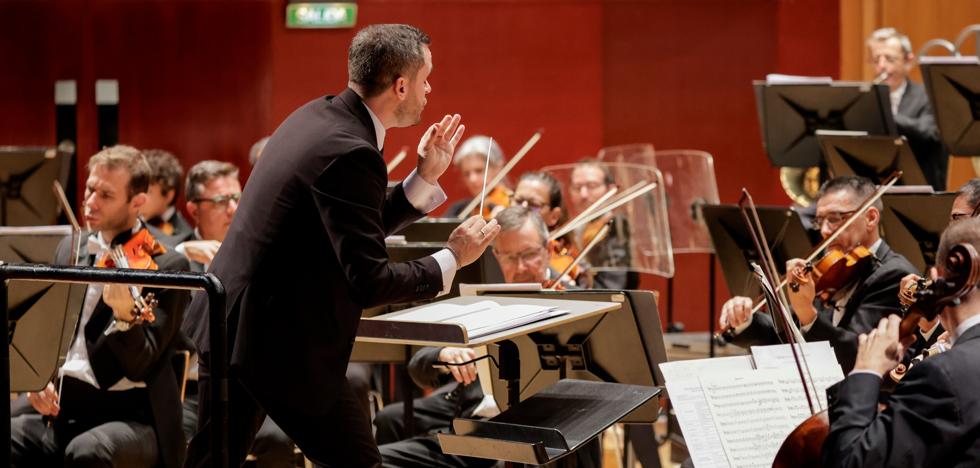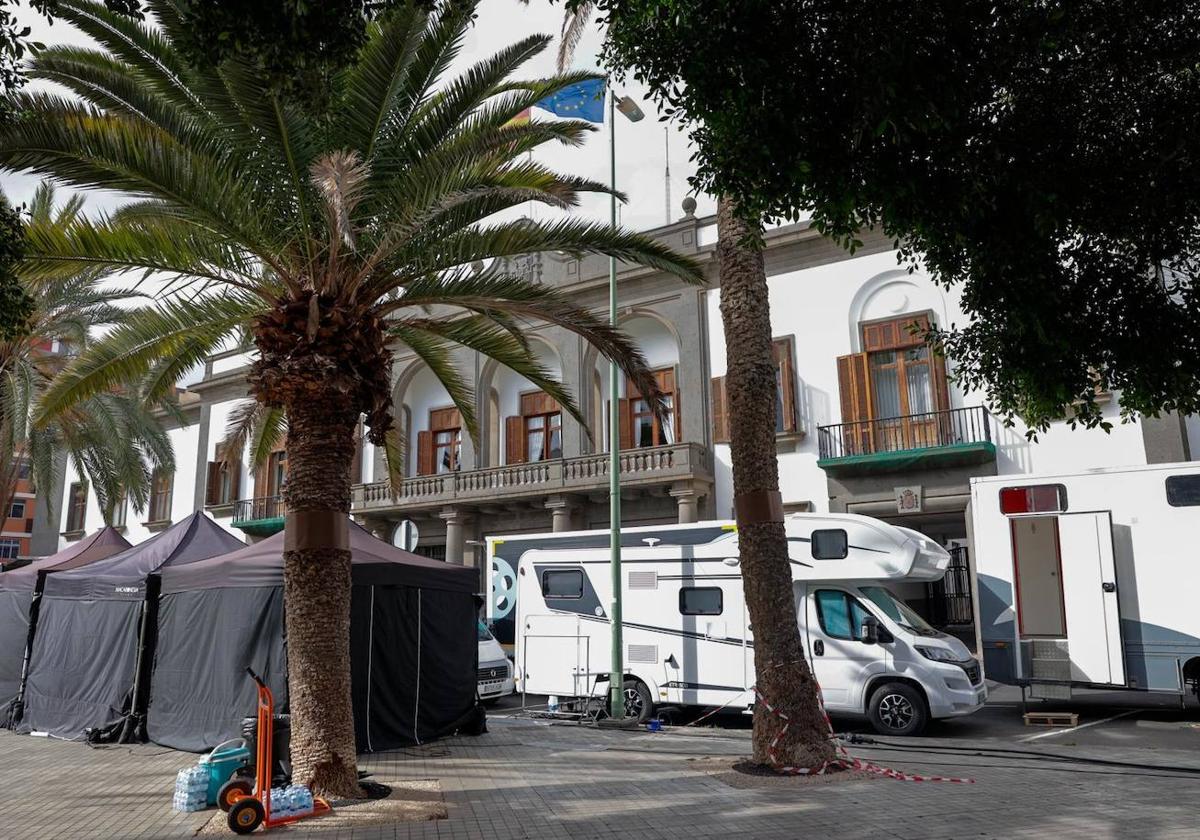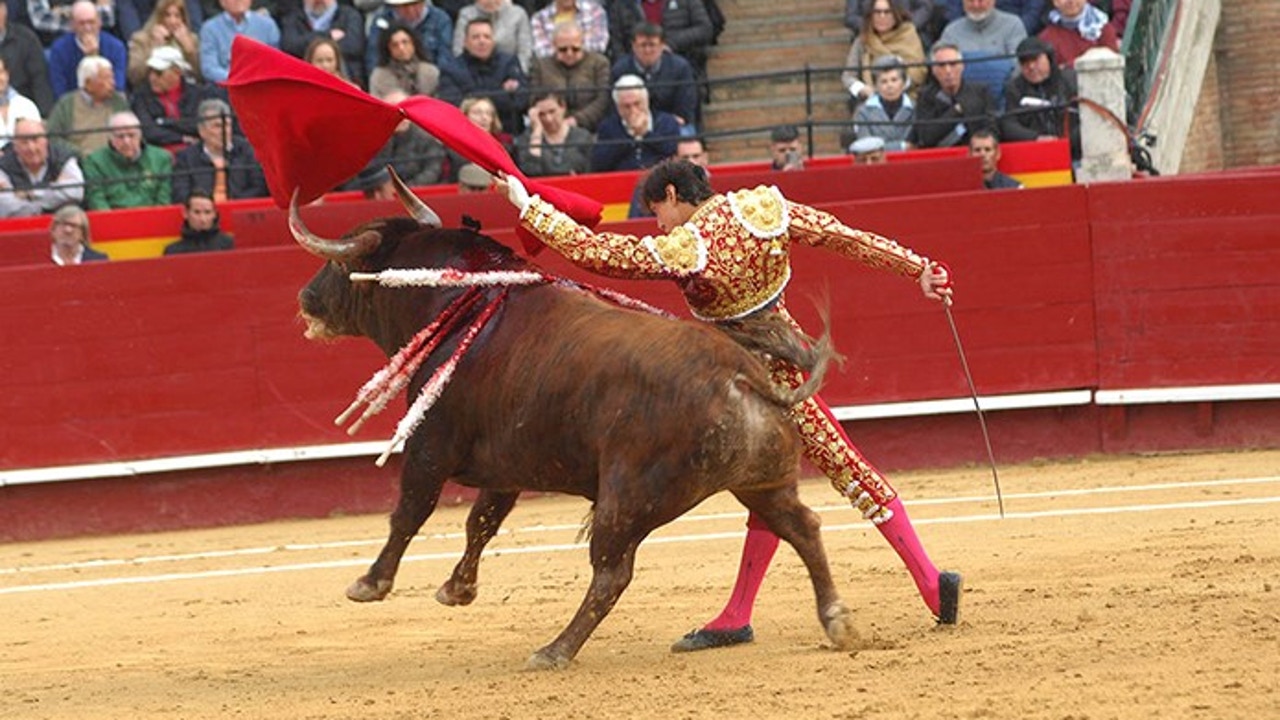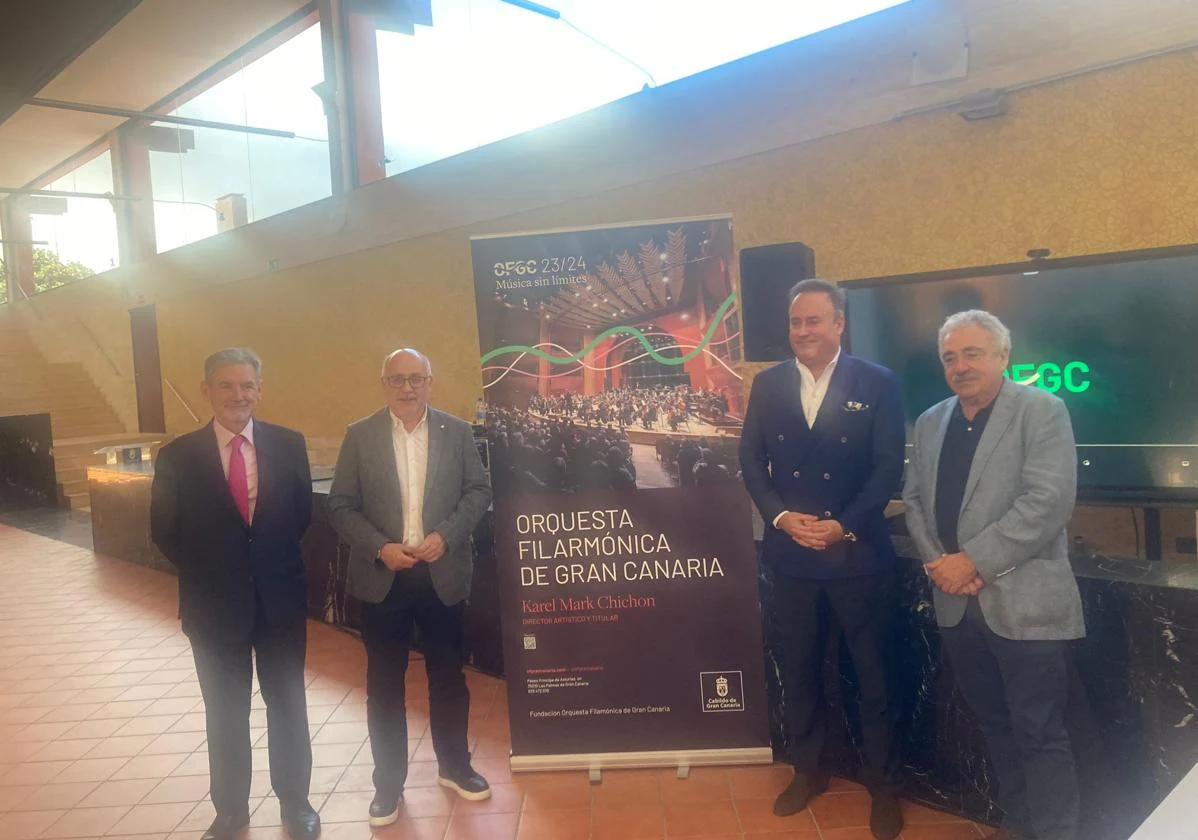An OFCG piece among the best classical music recordings of 2022

Archive image during the Christmas Solidarity Concert of the OFGC /
music
The New York Times has included the song 'La fleur que tu m'avais jetée', corresponding to the album 'Arias', by the group from Gran Canaria together with the Chilean-American tenor Jonathan Tetelman, in its list made by experts in classical music
The New York Times has included a piece recorded by the Gran Canaria Philharmonic Orchestra together with the Chilean-American tenor Jonathan Tetelman, "La fleur que tu m'avais jetée", by Bizet, corresponding to the album "Arias", among the best recordings of classical music of 2022.
This is a list that, each year at the end of the year, the New York Times draws up with expert critics in classical music who choose the best of the genre published in the last year.
«On his debut album, Jonathan Tetelman lavishes his sumptuous tenor voice and almost poetic attention to classic romantic arias and veristas. For 'La fleur que tu m'avais jetée', Tetelman muffles the contours of his phrases, hooks the high notes without breaking the musical line and nails the diminuendo in the high B flat », writes critic Oussama Zahr.
For his part, the director of the Gran Canaria Philharmonic Orchestra (OFGC), Karel Mark Chichon, said Tuesday in statements to EFE that "every musician aspires to receive recognition of this type" and has pointed out that the New York newspaper is not only a journalistic reference, but also a cultural one at the highest level, for which reason the recognition “says it all”.
«It is a professional achievement of the Orchestra and the tenor. And also a success story, it's not every day that Gran Canaria is talked about in musical terms. As a result of this album, more is being talked about and we have received very good reviews from all over the world, which have sometimes put us on the same level as the London Philharmonic", said Chichon, who also underlined the importance of having recorded with the "reference" record company for classical music, Deutsche Grammophon.
He has also highlighted the level of improvement of the Orchestra, after overcoming the pandemic, "the faith of the Cabildo" and the support of subscribers.
“It fills me with pride on a personal level to work with this group. It is always a pleasure and I am glad that we are going to start the year in this way. Every musician aspires to something like that", continued the director, who has defended that Gran Canaria "is not just the beach and nature", but "much more".
On the origin of the album, he has related that it arose after the tour that Tetelman carried out in Europe, which led him to look for a Central European orchestra that he could not due to union problems.
«After a collaboration with him that was very good, I explained to him that he had a great Orchestra in Gran Canaria and that it was a perfect project for both of us. During the recording there was an incredible, positive, self-improving work environment and both he and the record company were delighted, even with the idea of making other records", the director has abounded.
In this sense, he has stated that recognitions such as the one from the New York Times help other artists to seek to do projects with the OFCG, "which is what it is about."
Asked if he had spoken with Tetelman about the inclusion of the piece in the New York Times, Chichon said yes, that he "is delighted" both with this recognition and with the subsequent criticism that the album has received.
«I have made many records of this type and few or none have had this type of impact. Everyone has lined up to say that it is a great record and that the orchestra is at a top level”, Chichon concluded.











